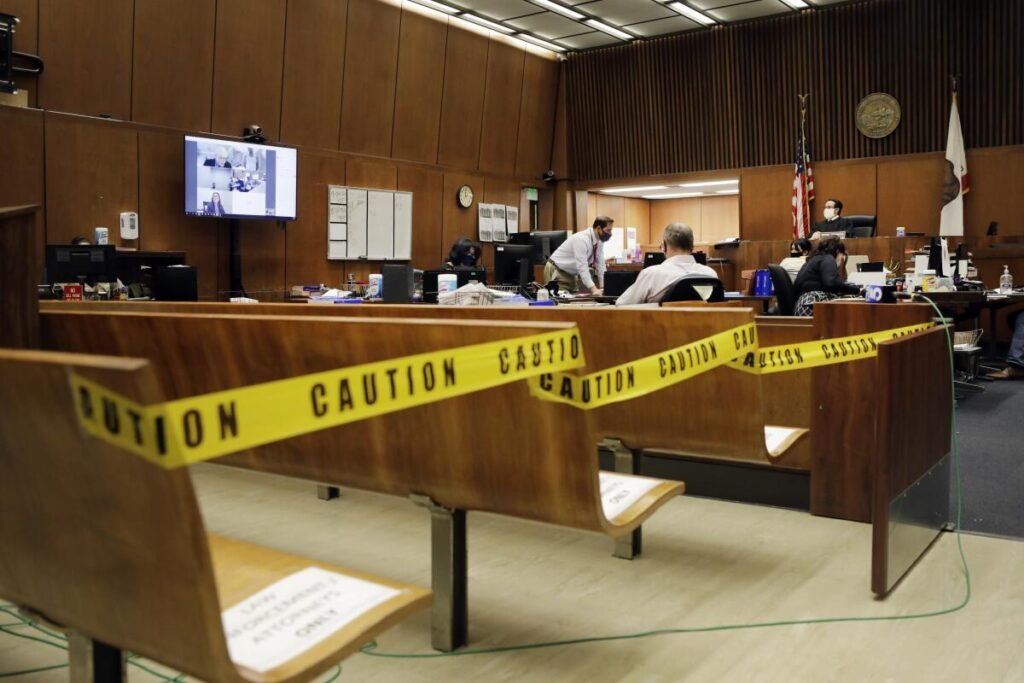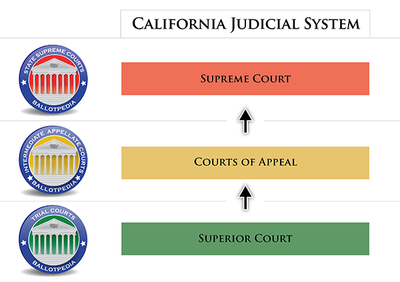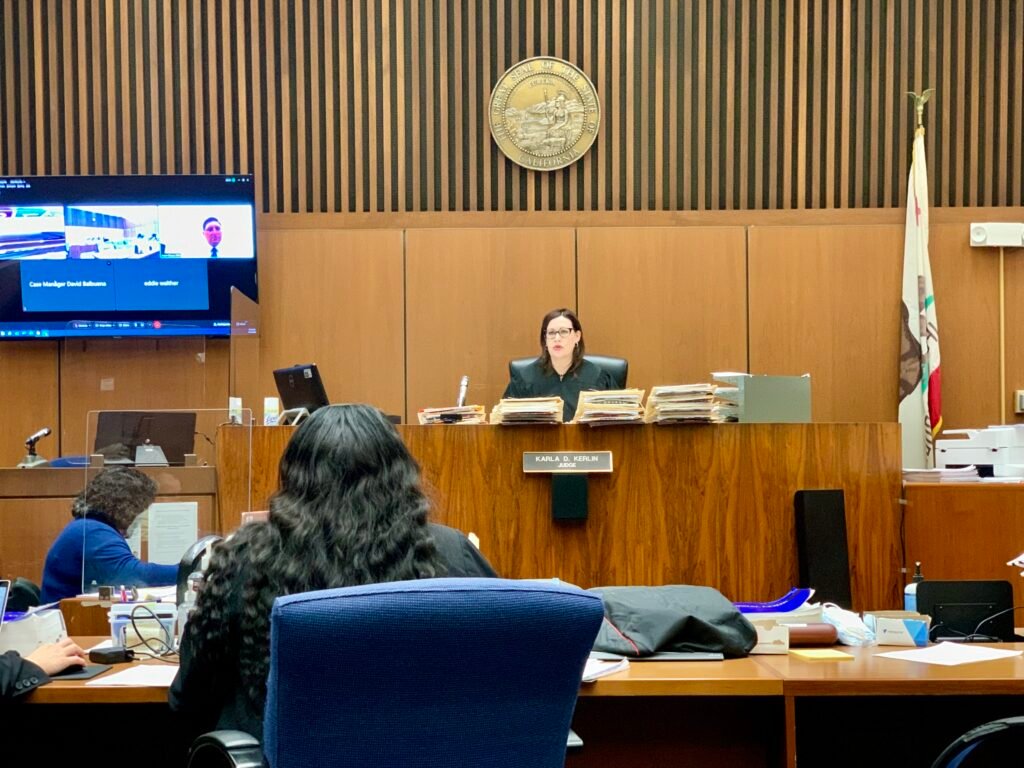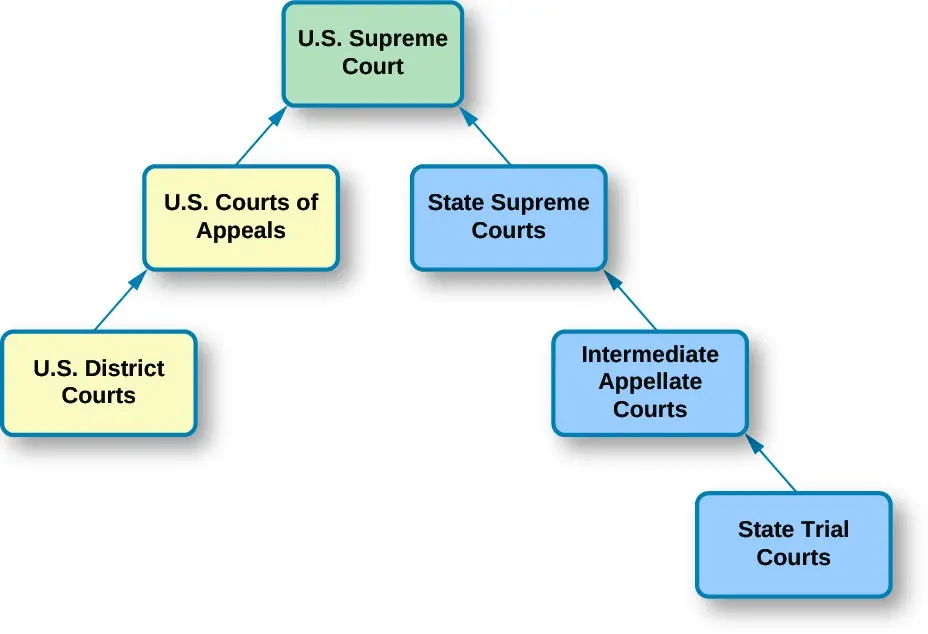The LA County court system, part of California’s state court system, operates with the Superior Court as the primary trial court. The Superior Court handles civil and criminal cases, including family, probate, and traffic matters, while the Court of Appeal and Supreme Court handle appeals.
Superior court judges serve six-year terms and are elected by county voters on a nonpartisan ballot at a general election. The governor fills vacancies through appointment. The L.A. Superior Court currently has 431 judges.



